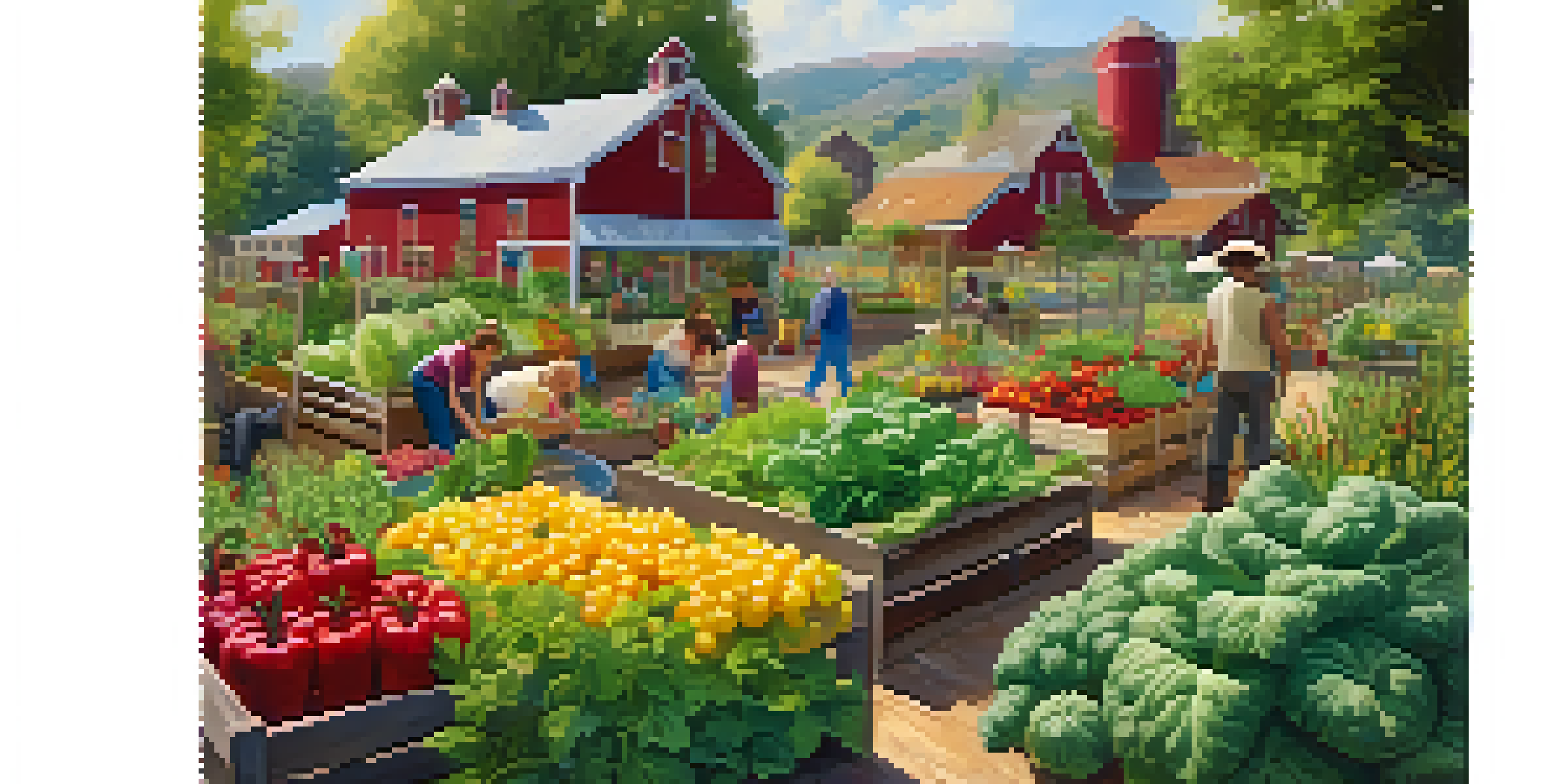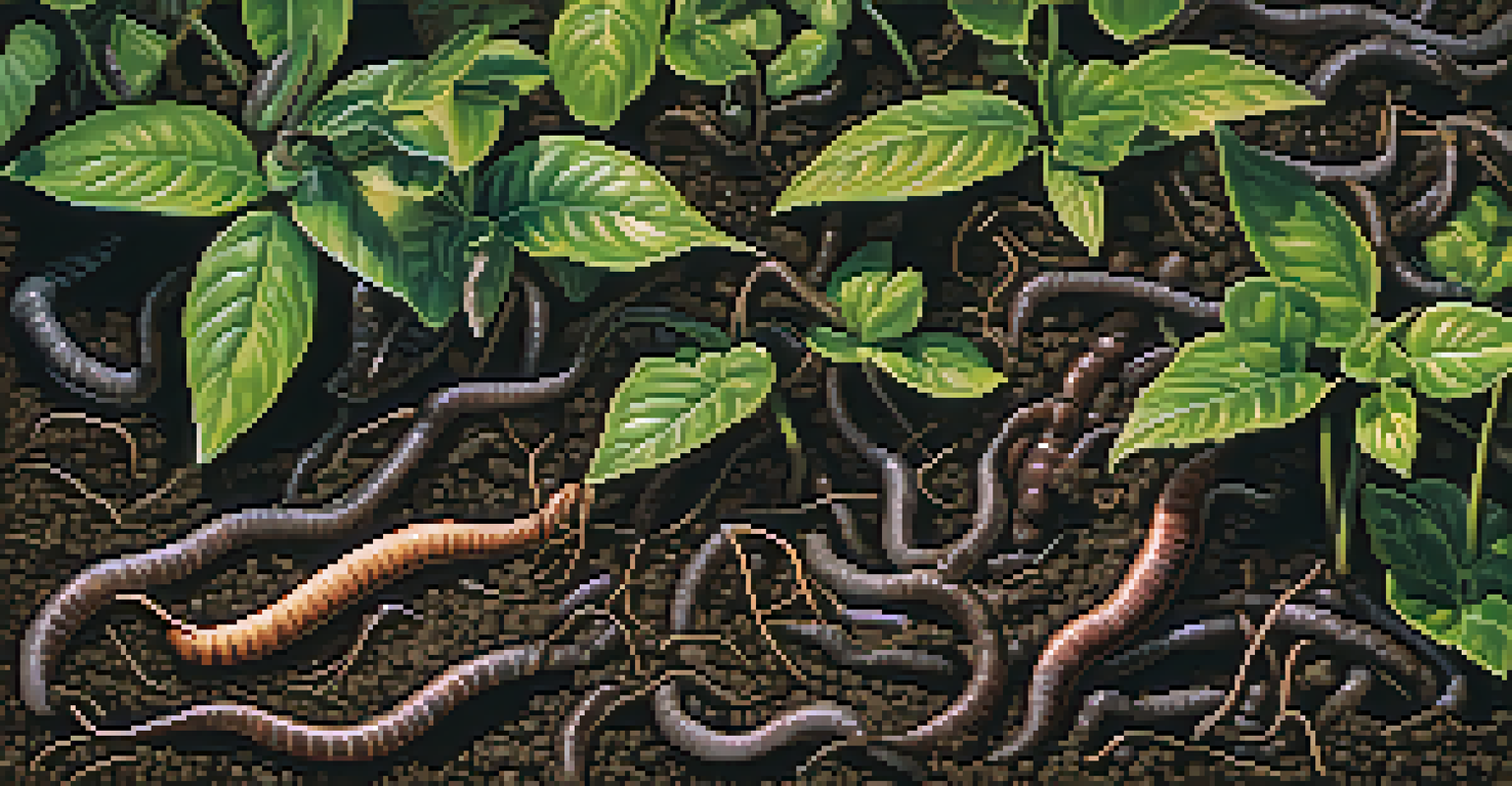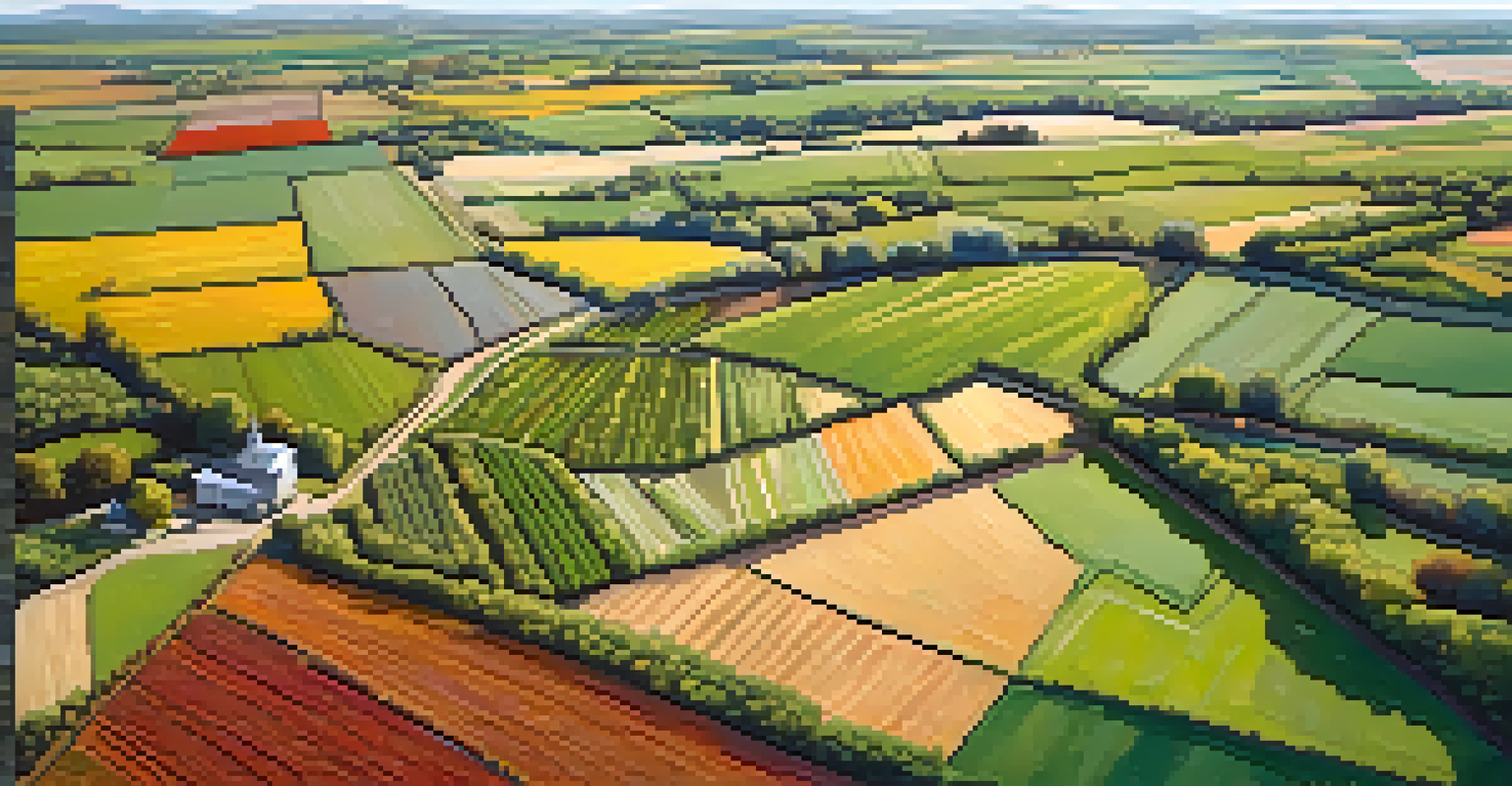Exploring the Relationship Between Vegetarianism and Soil Health

Understanding the Basics of Soil Health
Soil health refers to the capacity of soil to function effectively as a living ecosystem. It plays a crucial role in supporting plant life, filtering water, and maintaining biodiversity. Healthy soil is rich in organic matter, nutrients, and microorganisms, all of which contribute to a thriving environment for plants. The interplay between soil health and agricultural practices shapes the landscape of our food systems.
Healthy soil is the foundation of healthy food, and healthy food is essential for a healthy planet.
When soil is healthy, it can store more carbon and retain water better, which is essential for combating climate change. Furthermore, healthy soil supports robust crop yields, making it vital for food security. Understanding these basics helps us appreciate why the agricultural methods used to cultivate food can either enhance or degrade soil health.
As we delve deeper into the relationship between vegetarianism and soil health, it's essential to recognize that food choices can significantly influence these ecosystems. The shift toward plant-based diets may offer a sustainable path forward, benefiting both human health and the environment.
The Role of Plant-Based Diets in Soil Management
Plant-based diets generally require fewer resources than meat-based diets, leading to less pressure on soil ecosystems. By focusing on crops rather than livestock, we can reduce overgrazing and the subsequent soil degradation that often accompanies animal farming. This shift can lead to improved soil structure, nutrient retention, and biodiversity.

Moreover, practices like crop rotation and intercropping, common in vegetarian farming, enhance soil fertility and help control pests naturally. These methods not only boost soil health but also increase resilience against climate variability. The benefits extend beyond the soil, offering a more sustainable food system overall.
Soil Health is Essential for Ecosystems
Healthy soil supports plant life, filters water, and maintains biodiversity, playing a crucial role in our food systems.
Incorporating more vegetables, grains, and legumes into our diets doesn’t just promote personal well-being; it also encourages agricultural practices that restore and maintain soil health. The transition to a plant-based diet could thus be seen as a holistic approach to environmental sustainability.
Meat Production and Its Impact on Soil Health
Meat production often involves intensive farming practices that can lead to soil degradation. Overgrazing by livestock can compact the soil, reduce its organic matter, and erode the land. This not only harms the immediate environment but also contributes to larger issues like desertification and loss of arable land.
The care of the earth is our most ancient and most worthy, and after all, our most pleasing responsibility.
Additionally, the use of chemical fertilizers in conventional meat production can disrupt soil microbiomes. These chemicals may enhance short-term crop yields but can degrade the long-term health of the soil, leading to nutrient depletion. This cycle creates a dependency on synthetic inputs, which can further harm soil ecology.
In contrast, reducing meat consumption may alleviate some of these pressures, allowing soils to recover and regenerate. By exploring vegetarian diets, we can move towards more sustainable practices that honor the intricate balance of our ecosystems.
How Vegetarian Farming Practices Enhance Soil Quality
Vegetarian farming often embraces sustainable practices that enhance soil quality. Techniques such as cover cropping protect the soil from erosion and improve its structure by adding organic matter. This not only nourishes the soil but also creates habitats for beneficial microorganisms that contribute to soil health.
Another key practice is reduced tillage, which minimizes soil disturbance. This method helps preserve soil structure and prevents the loss of essential nutrients. By maintaining a healthy soil ecosystem, farmers can cultivate crops that are more resilient to pests and diseases, reducing the need for chemical interventions.
Plant-Based Diets Benefit Soil Quality
Shifting towards vegetarian diets promotes sustainable farming practices that enhance soil health and biodiversity.
As we embrace vegetarianism, the farming practices associated with it can lead to healthier soils and, consequently, healthier food. This symbiotic relationship highlights the importance of sustainable agriculture in promoting both human and environmental health.
The Connection Between Soil Biodiversity and Vegetarianism
Soil biodiversity refers to the variety of organisms that live within the soil, including bacteria, fungi, earthworms, and insects. A diverse soil ecosystem is crucial for nutrient cycling, organic matter decomposition, and overall soil health. When we adopt vegetarian practices, we often encourage farming methods that enhance this biodiversity.
For instance, polyculture farming, which involves growing multiple crop species together, can create a more balanced ecosystem. This approach supports a wider range of organisms, which in turn enhances soil health. A rich soil biodiversity not only improves the efficiency of nutrient use but also builds resilience against diseases and pests.
By choosing vegetarian options, we can support agricultural practices that foster biodiversity in the soil. This connection underscores the importance of our food choices in maintaining and improving the health of our planet.
Challenges Facing Vegetarian Agriculture and Soil Health
While vegetarian agriculture has its benefits, it also faces challenges that can impact soil health. Issues such as monoculture—growing the same crop repeatedly—can deplete specific nutrients from the soil and reduce biodiversity. This practice can lead to an increased vulnerability to pests and diseases, necessitating the use of chemical inputs.
Additionally, the shift to more plant-based diets can increase demand for specific crops, putting pressure on farmers to maximize yields. This pressure may lead to unsustainable farming practices that prioritize short-term gains over long-term soil health. Balancing productivity with sustainability is a critical challenge in the pursuit of healthier soils.
Challenges in Vegetarian Agriculture
Monoculture and increased crop demand can strain soil health, highlighting the need for sustainable practices in vegetarian agriculture.
Addressing these challenges requires a commitment to sustainable practices and a deeper understanding of the interconnectedness of our agricultural systems. By recognizing these issues, we can work towards solutions that support both vegetarian diets and soil health.
Future Perspectives on Vegetarianism and Soil Health
As we look to the future, the relationship between vegetarianism and soil health will play a pivotal role in our food systems. Emerging research is continuously uncovering the benefits of sustainable agriculture practices that prioritize soil health, suggesting that a shift towards plant-based diets could be crucial for environmental sustainability. Innovations in agroecology and regenerative farming techniques are paving the way for healthier soils.
Moreover, consumer awareness and demand for sustainable food options are increasing. This trend encourages farmers to adopt practices that align with both vegetarian diets and soil health. By fostering a culture of sustainability, we can drive change from the ground up, ensuring that our food systems are resilient and ecologically sound.

Ultimately, the journey towards healthier soils and a more sustainable diet is interconnected. By exploring the relationship between vegetarianism and soil health, we can inspire collective action towards a healthier planet for future generations.